Here are some Fragrant Flowers for Your Garden because there’s something magical about stepping into a garden and being greeted by a symphony of scents. Fragrant flowers can transform your outdoor space into a sensory paradise, providing not just visual beauty but also an aromatic delight. Whether you have a sprawling garden or a cozy balcony, incorporating fragrant flowers can elevate your gardening experience and create a soothing, inviting atmosphere. In this post, we’ll explore some of the best fragrant flowers to plant, their unique scents, and tips on how to care for them to ensure your garden is always blooming with sweet aromas.
1. Roses
- Varieties: ‘David Austin’ roses, ‘Damask’, and ‘Old Garden’ roses are known for their strong fragrances.
- Fragrance: Classic, sweet, and sometimes spicy.
- Tips: Plant in well-draining soil with full sun exposure. Regular pruning encourages healthy growth and abundant blooms.
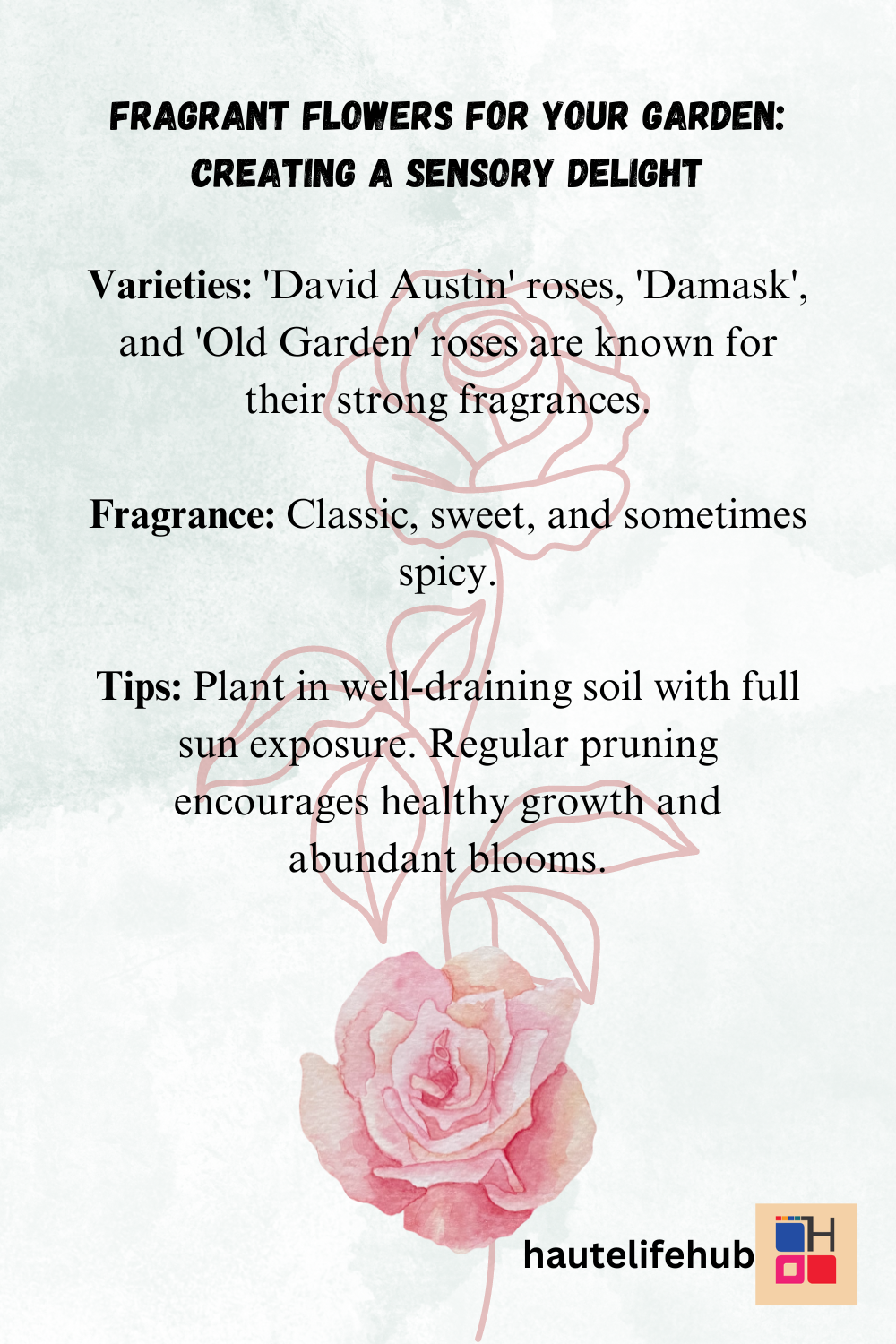
2. Lavender
- Varieties: ‘English Lavender’ (Lavandula angustifolia) and ‘French Lavender’ (Lavandula stoechas).
- Fragrance: Clean, sweet, and calming.
- Tips: Prefers full sun and well-drained, slightly alkaline soil. It’s drought-tolerant and needs little water once established.
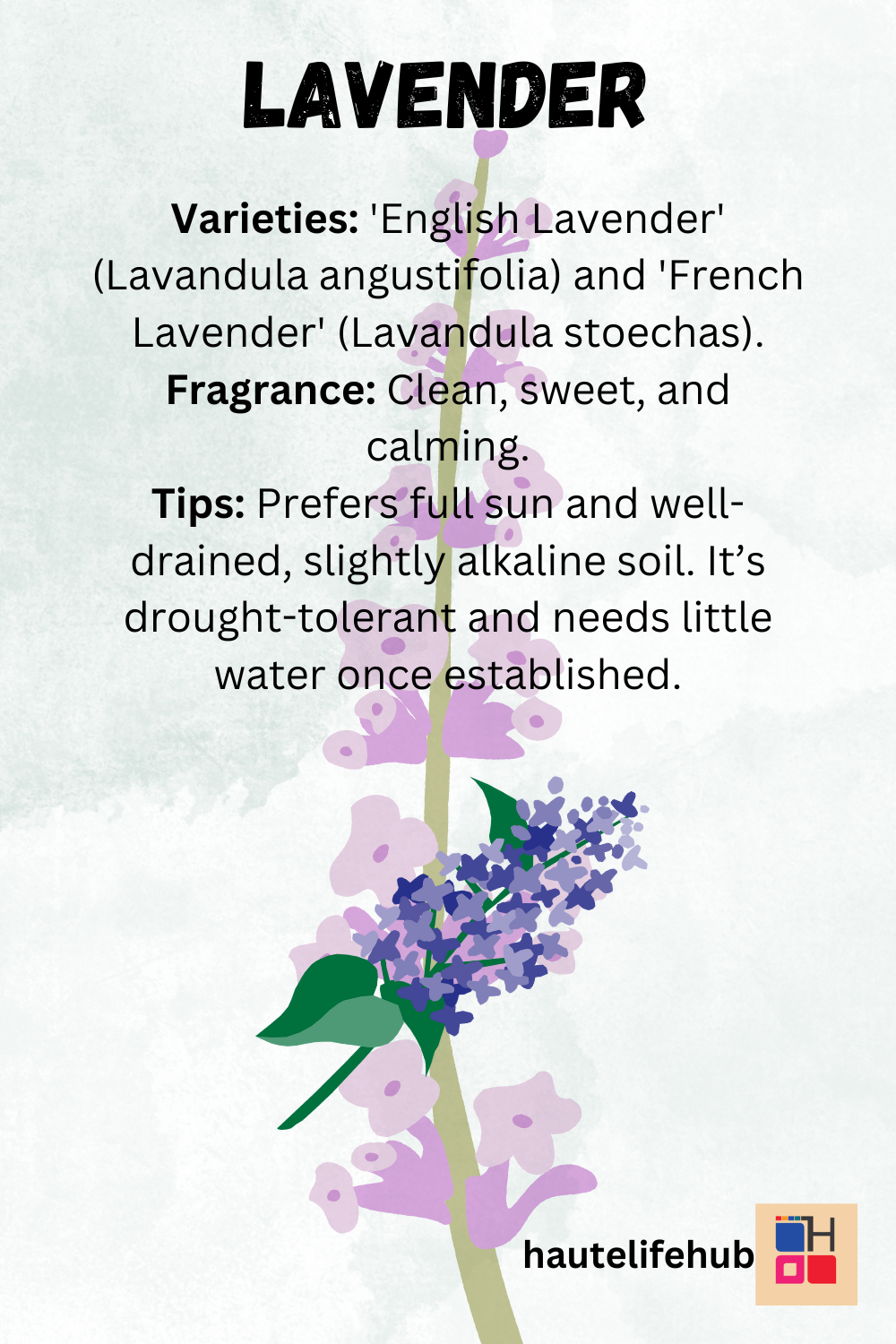
3. Jasmine
- Varieties: ‘Common Jasmine’ (Jasminum officinale) and ‘Star Jasmine’ (Trachelospermum jasminoides).
- Fragrance: Intense, sweet, and exotic.
- Tips: Grows well in full sun to partial shade. Requires support to climb or can be pruned into a shrub.
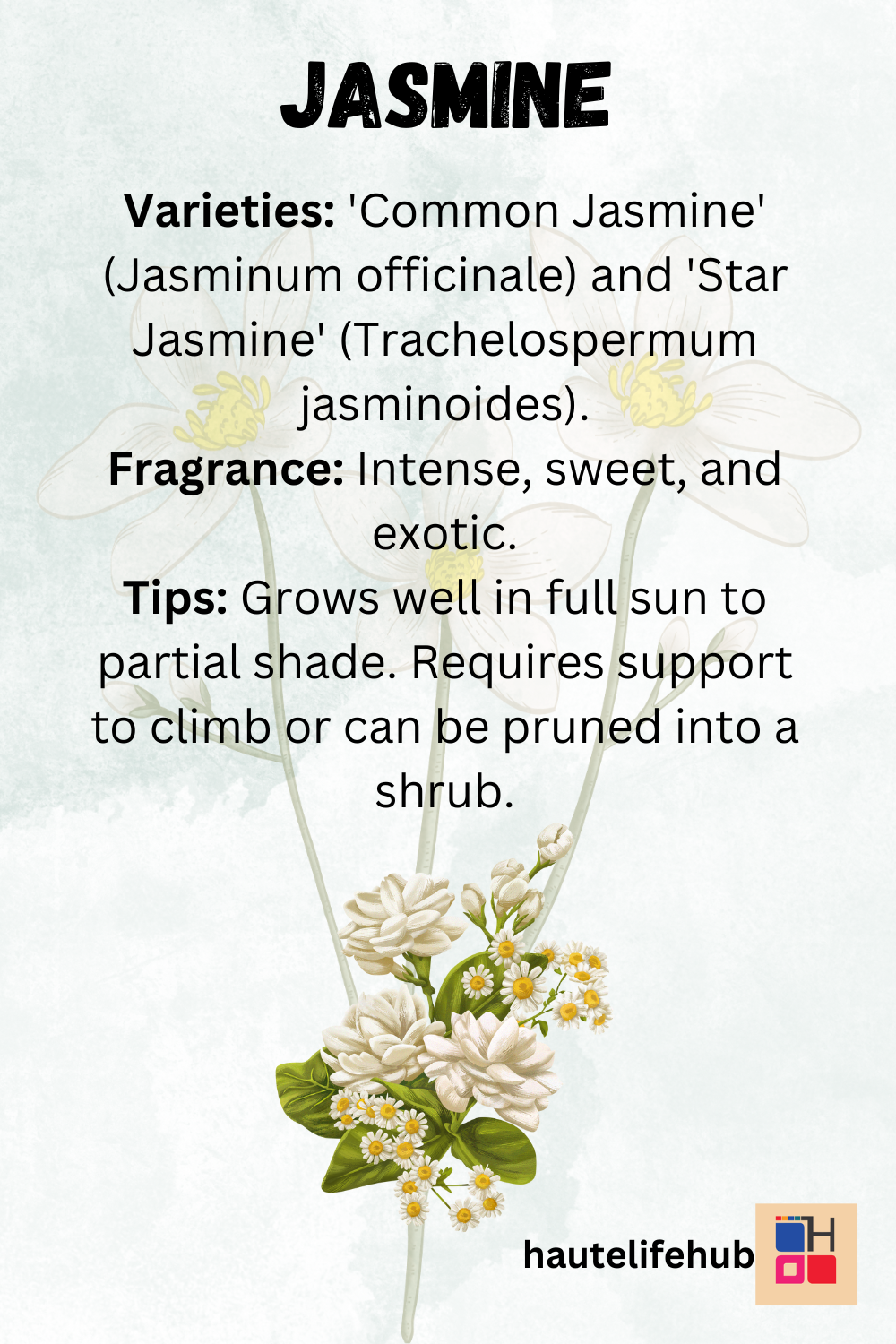
4. Gardenia
- Varieties: ‘Gardenia jasminoides’ and ‘Gardenia augusta’.
- Fragrance: Rich, sweet, and intoxicating.
- Tips: Needs well-drained, acidic soil and partial shade. Keep the soil consistently moist but not waterlogged.
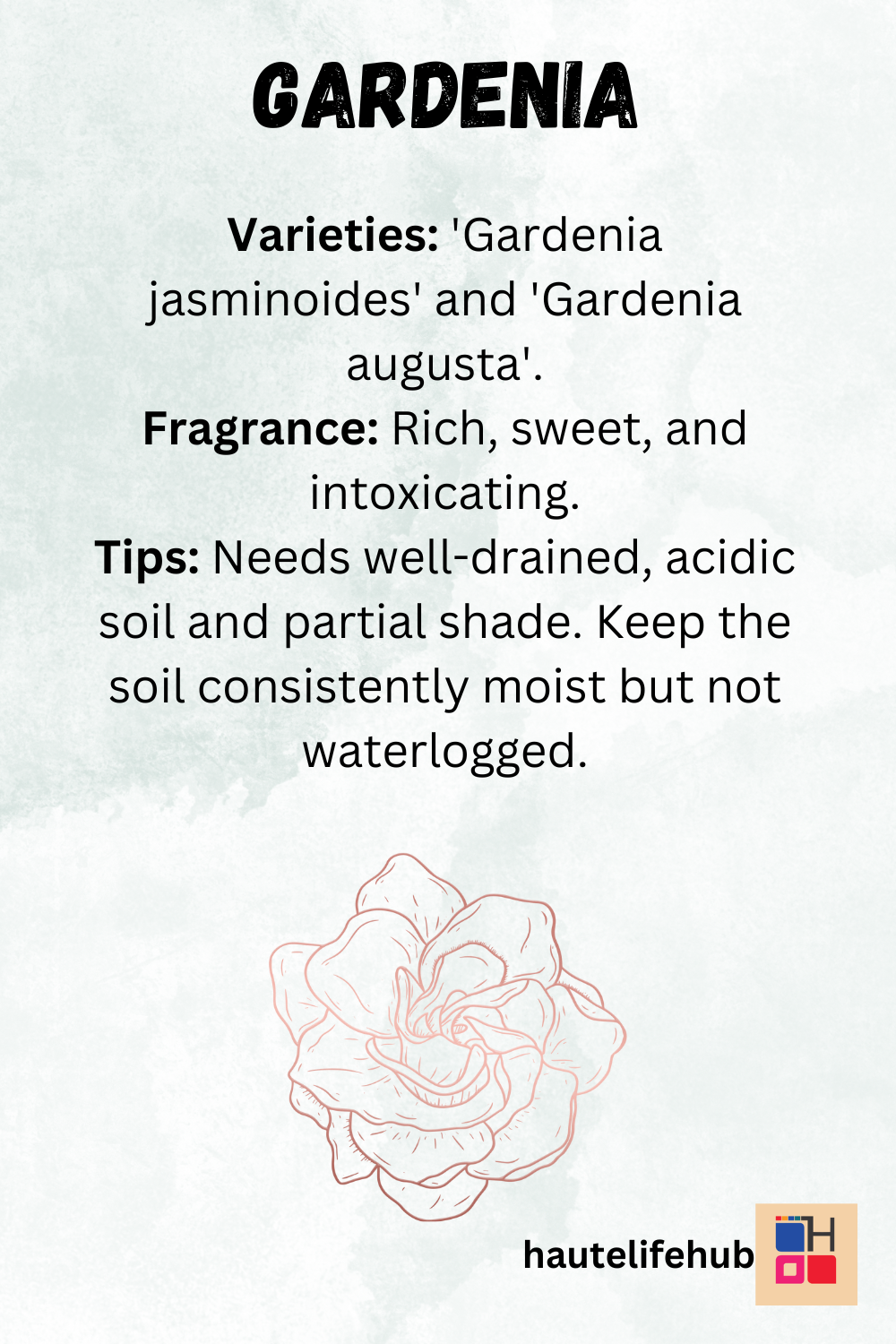
5. Honeysuckle
- Varieties: ‘Japanese Honeysuckle’ (Lonicera japonica) and ‘Trumpet Honeysuckle’ (Lonicera sempervirens).
- Fragrance: Sweet and nectar-like.
- Tips: Thrives in full sun to partial shade. It can be invasive, so regular pruning is necessary to control growth.
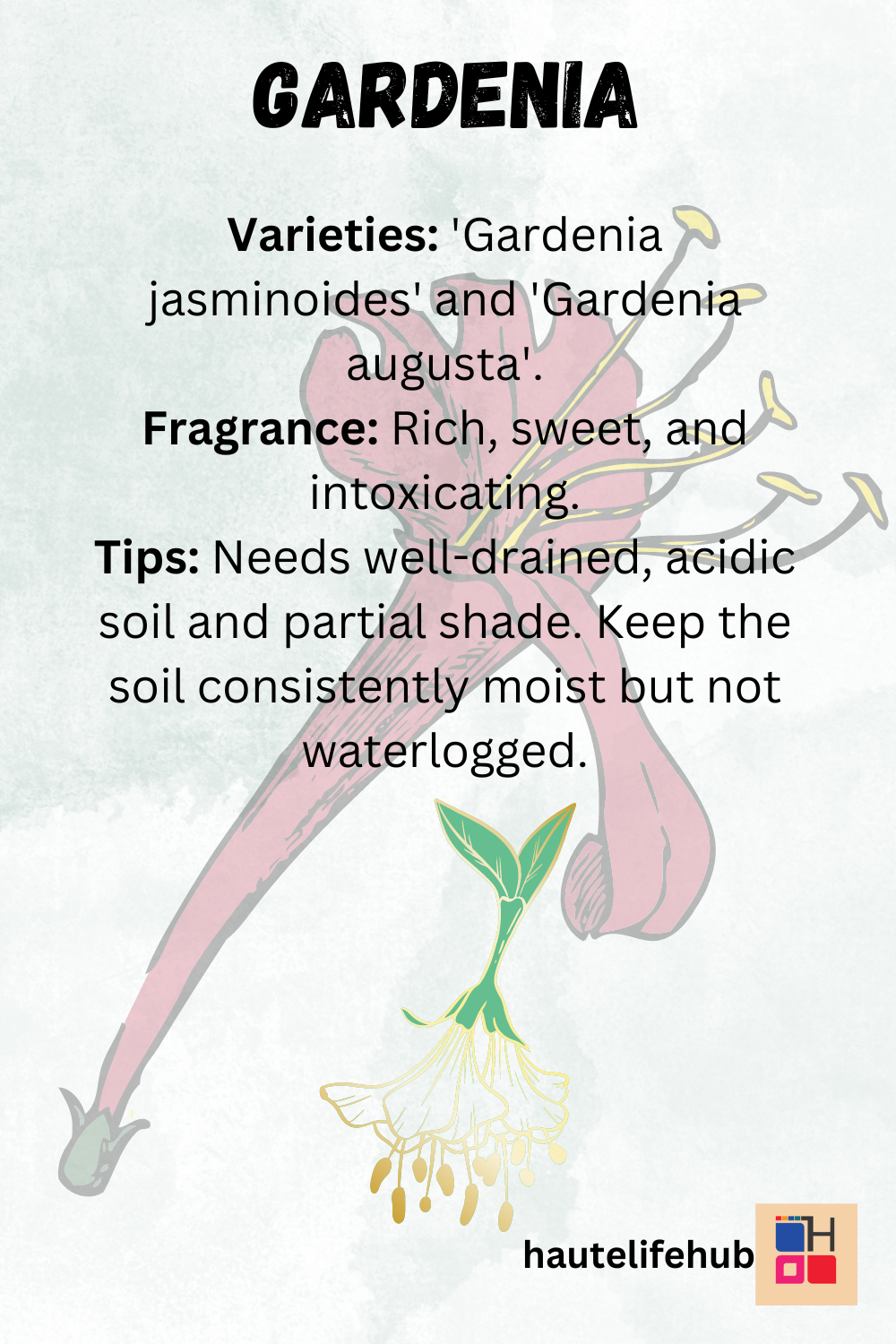
6. Lilac
- Varieties: ‘Syringa vulgaris’ and ‘Syringa meyeri’.
- Fragrance: Strong, sweet, and floral.
- Tips: Prefers full sun and well-drained, neutral to alkaline soil. Prune immediately after flowering to maintain shape and encourage next year’s blooms.
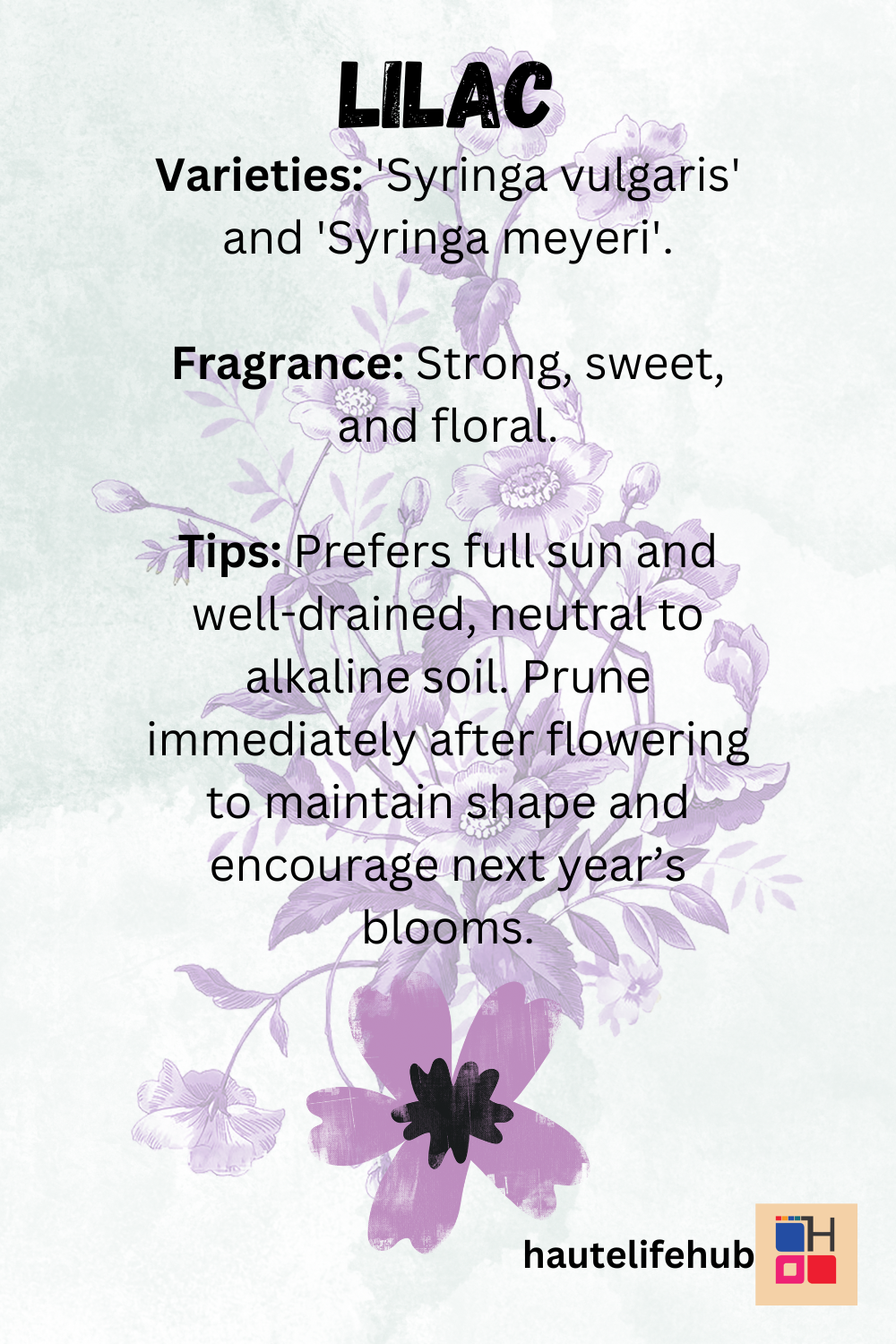
7. Sweet Pea
- Varieties: ‘Lathyrus odoratus’ and heirloom varieties.
- Fragrance: Sweet and floral, often compared to honey.
- Tips: Requires full sun and rich, well-drained soil. Keep the soil moist and provide a trellis for support.

8. Dianthus (Pinks)
- Varieties: ‘Dianthus plumarius’ and ‘Dianthus caryophyllus’.
- Fragrance: Spicy, clove-like scent.
- Tips: Prefers full sun and well-drained soil. Deadhead regularly to promote continuous blooming.
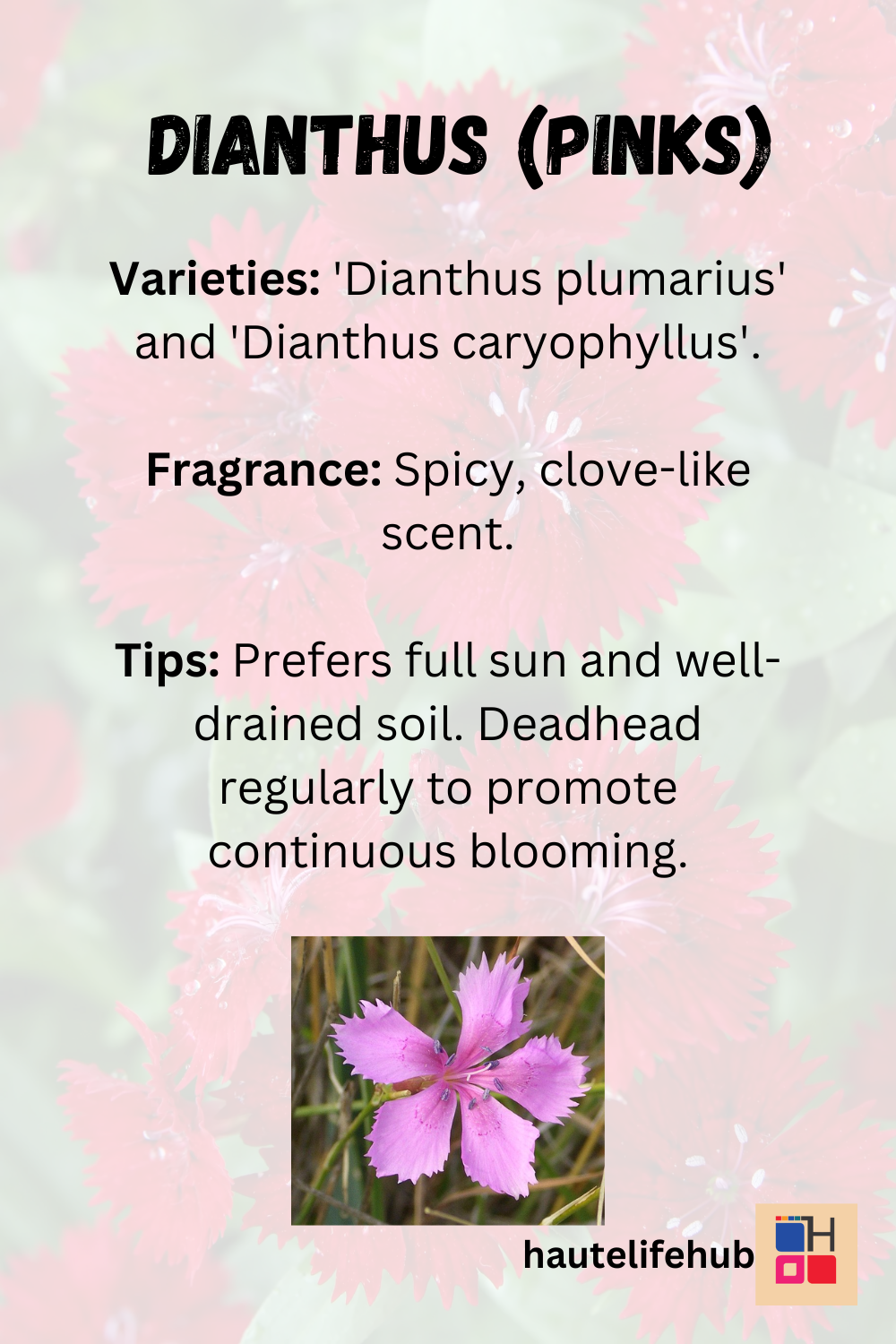
9. Peony
- Varieties: ‘Paeonia lactiflora’ and ‘Paeonia suffruticosa’.
- Fragrance: Sweet, often with a hint of citrus or spice.
- Tips: Requires full sun and rich, well-drained soil. Peonies are long-lived perennials that can take a few years to establish.
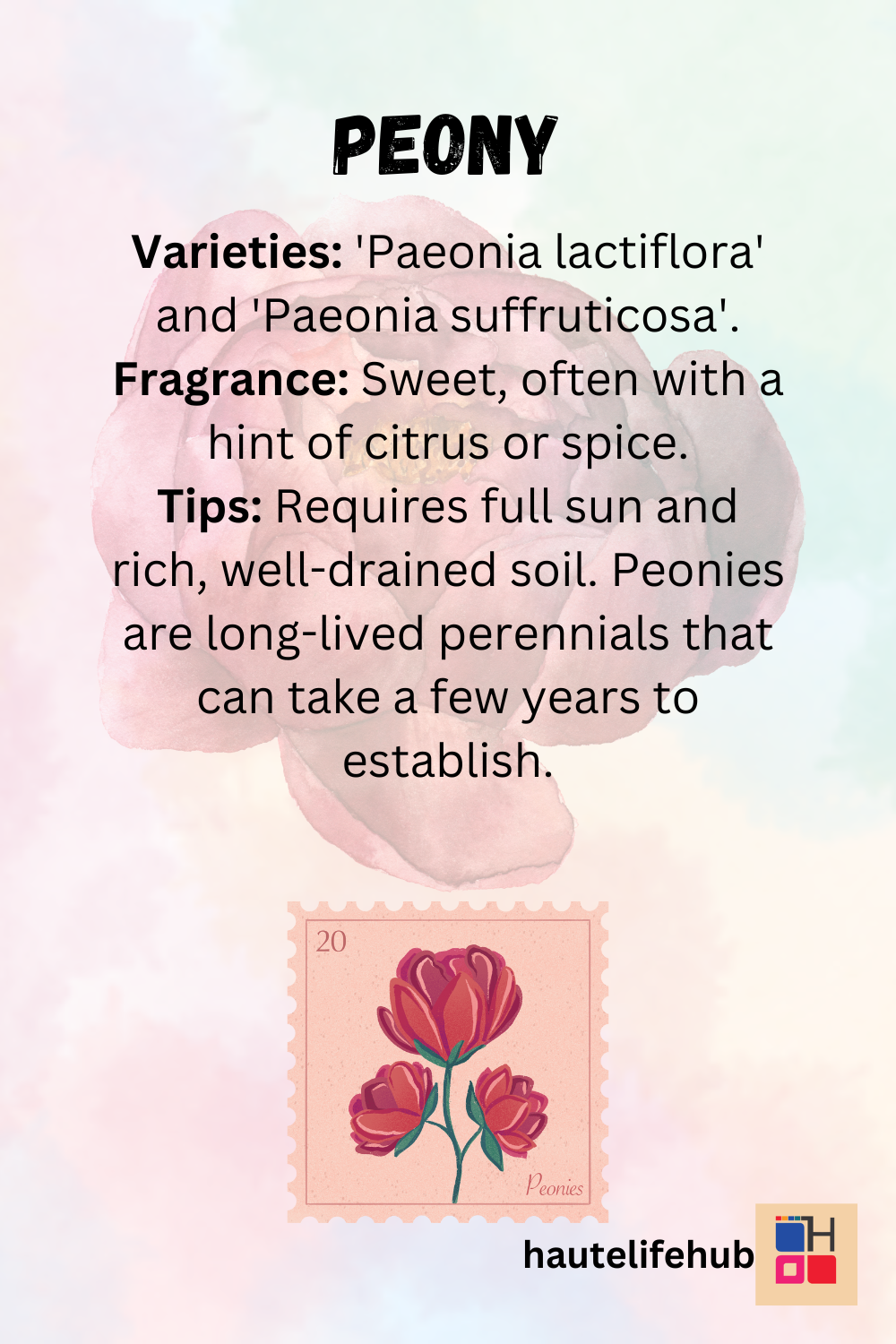
10. Hyacinth
- Varieties: ‘Hyacinthus orientalis’.
- Fragrance: Strong, sweet, and floral.
- Tips: Plant bulbs in the fall in well-drained soil and full sun to partial shade. Hyacinths are excellent for early spring fragrance.
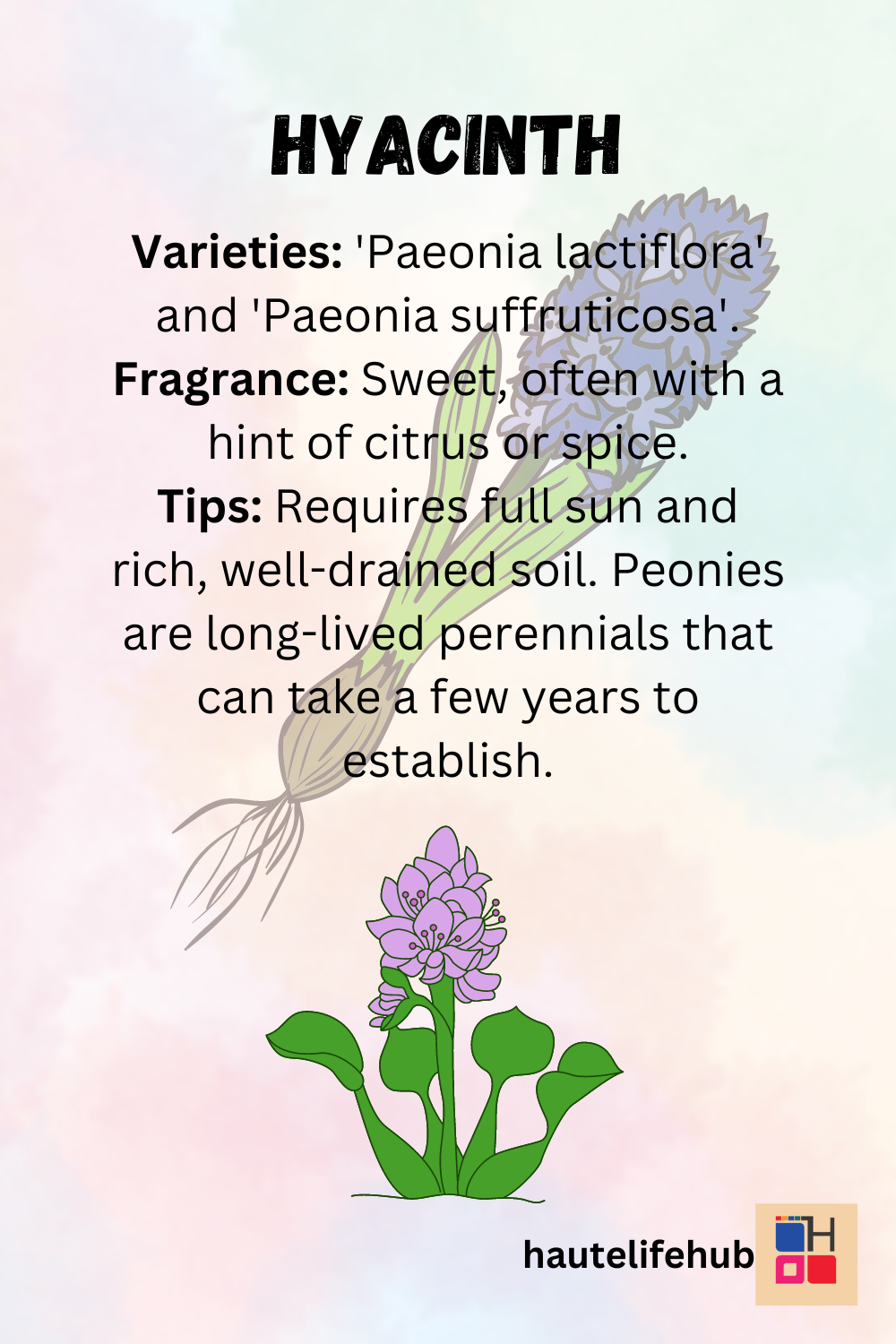
Planting and Care Tips
- Soil Preparation: Ensure your soil is well-draining and enriched with organic matter to support healthy growth.
- Watering: Most fragrant flowers prefer consistently moist soil but avoid over watering, which can lead to root rot.
- Fertilizing: Use a balanced fertilizer to provide essential nutrients, particularly during the growing and blooming seasons.
- Pruning: Regularly prune and deadhead spent flowers to encourage new blooms and maintain plant health.
- Pest Control: Monitor for pests and diseases, using organic or chemical controls as needed to protect your plants.

